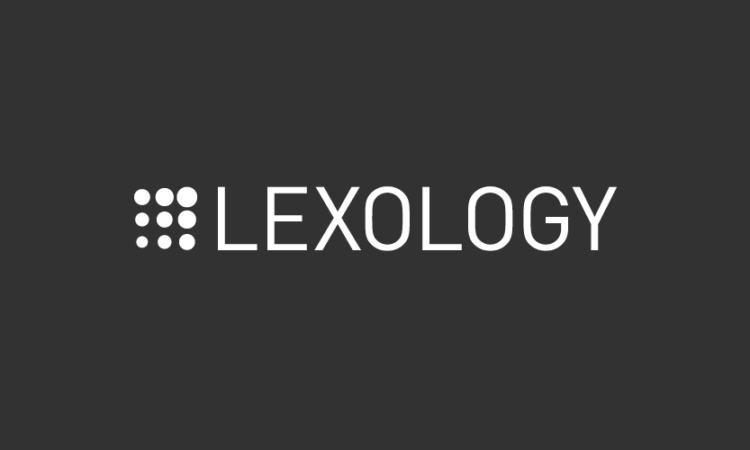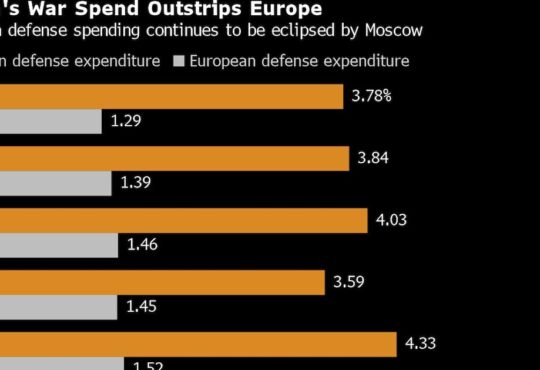
All questions
Overview of restructuring and insolvency activity
i Liquidity and state of the financial markets
The Dutch financial markets were generally liquid in 2022, but the uncertainties brought by companies exposed to volatile energy prices or commodity prices combined with a rising interest rate environment complicated many individual transactions. Between March and June 2022, many companies looked for additional liquidity to build reserves for higher prices in their supply chain, which could obviously only be passed on to offtakers later on. Driven by sheer demand, banks had to be somewhat selective in which borrower they wanted to dedicate time to. In the direct lending market, there was good supply, but an environment of rising interest rates did have a negative impact on deal volumes.
ii Impact of specific regional or global events
The Russian invasion of Ukraine, and its fallout on many prices and resultant inflation, dominated 2022. The number of borrowers affected was significant. Credit remained available, but the inflation environment did create a new normal about sustainable debt levels. Similar uncertainties reduced prices on offer in the M&A market, resulting in a comparatively low volume of more opportunistic financings in 2022.
iii Market trends in restructuring procedures and techniques employed during 2022
Cases of pre-packaged insolvencies (pre-packs) have effectively been halted in the Netherlands as a result of the judgment of the European Court of Justice (ECJ) concerning the Estro pre-pack. Although the Dutch legislator continues to work on a broader statutory platform for pre-packs (see Section VI.ii), employee rights have taken centre stage in the discussion. It follows from the Estro case that pre-packs can, in most instances, no longer be used as a tool to make part of the workforce redundant, at least not without making severance payments. However, following the judgment of the ECJ in the FNV/Heiploeg case,2 the Dutch bill governing pre-packs might gain new momentum, and parties might benefit from certain derogations to employee protections applicable to companies in insolvency proceedings under EU law (which may extend to pre-pack sales in certain circumstances). With regard to divestments and the termination of employment contracts, it follows from case law of the Supreme Court that no prior approval of the works council3 is currently required for the liquidator to decide on asset disposals4 or the dismissal of employees.5 However, such decisions by the liquidator do require prior approval in the event of a going-concern sale pursuant to which (a part of) the debtor’s business is continued or if business rescue is facilitated within the same corporate entity (e.g., by the adoption of a composition plan).
In retail insolvencies, one enforcement method that is used regularly includes a liquidation sale conducted by the liquidator under a mandate granted by the secured creditor. Any cash and electronic payments made by customers in respect of encumbered property are deemed to constitute enforcement proceeds available for distribution to the secured creditor.
In retail insolvencies, it appears that landlords often capitalise on holdout value. The termination of a lease in respect of premises in favourable locations could easily thwart any corporate rescue attempt of the debtor’s ailing business. Nevertheless, in most cases in which a going-concern sale is viable, the landlord will cooperate in facilitating the sale by accepting the purchaser of the debtor’s business as a new lessee.
In larger insolvency proceedings containing numerous (notably financial) creditors, debt restructurings often take place through a consensual deal or a restructuring plan, where necessary combined with a statutory cramdown mechanism in formal proceedings or by using a foreign route (e.g., a scheme of arrangement under English law). In cases in which domestic insolvency proceedings are needed, large debtors occasionally petition the court for the appointment of a silent administrator. As is further discussed below in Section VI.ii, the silent administrator will generally be appointed by the court as liquidator upon the commencement of formal proceedings and can use the period of silent administration to prepare the future commencement of formal insolvency proceedings (including a possible composition plan or a going-concern sale to be executed swiftly upon the commencement of the proceedings).
As will be further discussed below in Sections II.i and III.i, Dutch legislation governing pre-insolvency restructuring plans entered into force on 1 January 2021. Such pre-insolvency restructuring plans have been used regularly in 2021 by, notably, small and medium-sized enterprises (SMEs) instead of formal Dutch insolvency proceedings or foreign restructuring alternatives. In 2022, the regime is increasingly being used by large debtor companies to implement a restructuring of its liabilities or certain capital components.
At times of great market uncertainty (e.g., as applied in 2022), proper financial forecasting was a significant challenge in restructuring financially ailing companies. To prevent the unnecessary failure of viable businesses, courts and liquidators have taken such uncertain market conditions into account when addressing matters of transaction avoidance, wrongful trading and liability of directors.
iv Number of formal procedures entered into or exited from during 2022
According to details made available by the Central Bureau of Statistics of the Netherlands,6 the total number of corporate bankruptcy proceedings commenced in 2022 amounts to 1,854 new cases (excluding sole proprietors). This represents an increase of approximately 17 per cent compared with the number of new filings in 2021. It is likely that state-governed relief programmes with respect to the covid-19 pandemic have shielded a significant number of corporate debtors in 2021 against the commencement of bankruptcy proceedings. However, main state-governed relief programmes were cancelled in 2022.
Similar to previous years, most new bankruptcies have been recorded in the trade sector (albeit that this is one of the largest sectors in the Netherlands in terms of the total number of registered companies). The trade sector also represents the sharpest increase in number of new bankruptcy cases compared with 2021.
Recent legal developments
i Public Dutch pre-insolvency scheme and the EU Insolvency Regulation (Recast)
On 1 January 2021, the Act on Confirmation of Extrajudicial Restructuring Plans (WHOA) entered into force. The WHOA establishes a new pre-insolvency procedure to restructure debts of companies in financial distress. The WHOA borrows elements from frequently applied foreign restructuring tools, such as US Chapter 11 proceedings and UK schemes of arrangement, combining these into a single framework. The Dutch scheme offers an effective, flexible and widely accessible tool for distressed companies to implement a financial restructuring. A scheme can be offered to any class of creditors or shareholders. Upon its adoption at the voting hearing and its subsequent confirmation by the court, the restructuring plan is binding on all classes of creditors and shareholders to which it is offered (i.e., (cross-class) cramdown). During the course of the WHOA procedure, the debtor remains in possession of its assets. A distinction can be made between public (disclosed) and private (undisclosed) WHOA proceedings. Only public WHOA proceedings have been added to Annex A of the EU Insolvency Regulation (Recast)37 and benefit from automatic recognition within the EU (subject to the scope and terms of the Regulation). This amendment of the Regulation became effective on 9 January 2022.
ii Dutch implementation of the EU Directive on Insolvency, Restructuring and Second Chance
As stated above, the WHOA entered into force on 1 January 2021. The WHOA was deemed by the legislator to implement the EU Directive on Insolvency, Restructuring and Second Chance. Various remaining parts of the Directive are included in a separate Implementation Act which will enter into force on 1 January 2023. Changes which will be introduced with the Implementation Act include certain carve-outs from the scope of the WHOA (e.g., premium payment obligations to pension funds, existing or future pension benefits, certain security rights granted under financial collateral arrangements or within the context of payment and settlement systems and certain netting and set-off arrangements). The Implementation Act has also been used by the legislator to amend the WHOA in several respects. Such amendments are aimed at strengthening the position of the debtor in WHOA proceedings. Under the new regime, the appointment of a restructuring expert by the court (e.g., upon being petitioned by a creditor or shareholder of the debtor company) does not prevent the debtor from preparing a (competing) WHOA plan. Such plan must be presented by the restructuring expert to eligible voting parties and – in case of competing plans – must first be voted on.
iii WHOA case law
Numerous cases have now been litigated before the Dutch courts on pending WHOA proceedings (both in relation to SMEs and large corporate debtors). Main themes of such litigation concern valuation disputes (notably for purposes of establishing the liquidation comparator or the reorganisation value), the application of the absolute priority rule, class composition, information disclosure obligations, the appointment of a restructuring expert and grounds to reject confirmation of a WHOA plan to trigger a (cross-class) cram down. See for a list of new and pending restructurings resulting in WHOA proceedings commenced in 2022 and early 2023 below at Section IV.
iv Scope of set-off rights of account bank/pledgee
Set-off rights of an account bank in the twilight zone preceding and after the commencement of insolvency proceedings of the account holder is subject to certain limitations. For example, no set-off may occur in relation to overdrafts and incoming payments to the account holder in the event that such payment occurs at a time when the account holder’s insolvency can be reasonably expected. An exception to this rule is made in the event that the incoming payment concerns a payment obligation owed by a third party to the account holder which has been encumbered with an undisclosed right of pledge in favour of the account bank. Discussions in legal literature and practice on the scope of this exception (e.g., in the case of syndicated loans and in case of arrangements with joint and several liability of the account holder) are fuelled by current litigation on such matters in the Dutch courts.
Significant transactions, key developments and most active industries
Below is an overview of significant restructuring and insolvency procedures commenced or still pending in 2022:
- bankruptcy proceedings (including liquidations and going-concern sales):
- Amsterdam Trade Bank (finance);
- Avion Group (flight simulator);
- Bakker.com (retail);
- Damco Aldel (manufacturer);
- D-reizen (tourism);
- FNG Group (retail);
- Gameworld (trade);
- RCCS Waardetransport (security and money transport);
- Red Je Pakketje (delivery);
- Riverdale (retail);
- Office Centre (retail);
- Ontzorgd Wonen Groep (real estate);
- PrikEnergie (energy);
- Wagamama (food); and
- Zalmhuys Group (food).
- WHOA:
- ADO Den Haag (sports/professional football club);
- Borealis Interactive Group (events);
- Kroonboer Materieel/Kroonboer Installatietechniek (construction; leasing);
- Royal IHC (shipbuilding); and
- Vroon (shipping).






